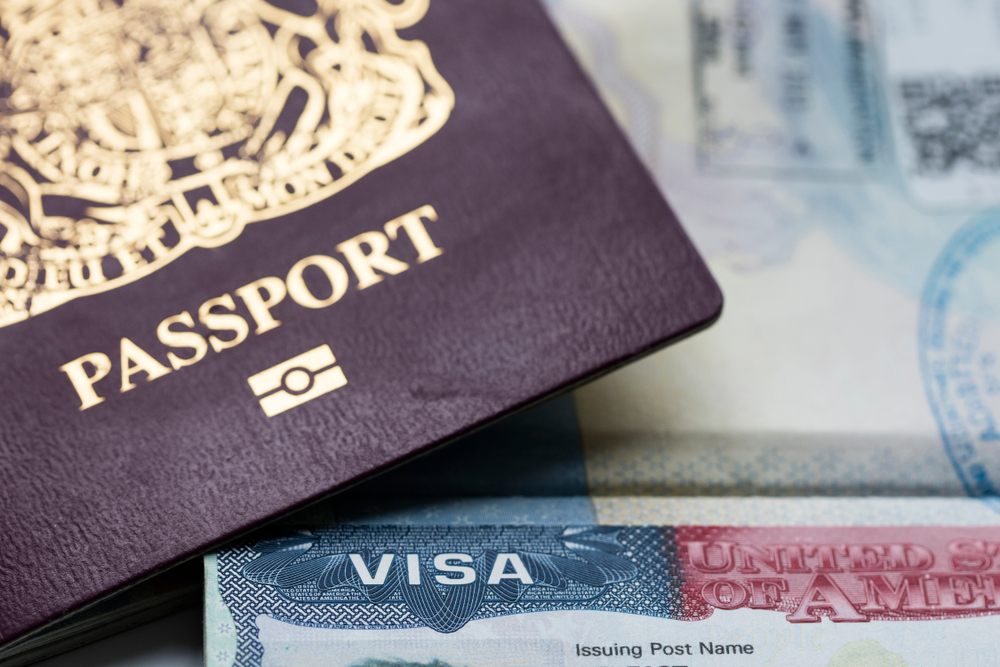President Donald J. Trump’s musing this month that he might “leave the country” if he loses his reelection bid mirrors the real actions thousands of people took after he was elected in 2016.
Although Trump says he was joking, the country’s bitter political divide is prompting people to consider repeating that very real move abroad in 2021.
Following September’s Presidential debate, Google searches for “how to apply for Canadian citizenship” surged, with the most queries coming from Massachusetts, Washington state, Pennsylvania and Texas.
Legally, leaving the U.S. is easy. All you need is a passport.
But entering and remaining in another country is much more complicated.
Aside from meeting foreign visitor or immigration laws, there also are legal and financial issues that should be considered before making the decision to emigrate from the United States.
Emigration statistics
Estimates of the numbers of American citizens living abroad range between nearly five million and nine million, but no one knows the number for sure since the U.S. government does not track its citizens who leave the country.
There are some hints, however. The Federal Voting Assistance Program, which monitors the number of voters casting ballots from overseas, reports there are 2.9 million eligible voters living abroad.
RELATED: Judge orders Post Office to backtrack on some changes
RELATED: Coronavirus leads to outbreak in voting litigation
The Canadian government reports that after Trump’s election in 2016, emigration from the United States increased significantly. By 2019, nearly 11,000 U.S. residents emigrated to Canada, a huge increase over the 600 U.S. citizens who moved there in 2015.
Gallup polls in 2017 and 2018 found that more people — 16 percent — wanted to move permanently to another country, much higher than during the George W. Bush (11 percent) or Barack Obama (10 percent) administrations.
A 2017 survey by the BBC found that people considering or actually leaving the U.S. do so mostly for political and economic reasons. Other reasons include marriage, employment or retirement, as well as social issues such as lingering racism.
“My 29-year-old left the country for Australia yesterday. I was born there but I'm a Dutch citizen with permanent residency here in the States. I have lived here most of my life but I really want to leave , it doesn't feel right anymore,” Simonne Reinier told the BBC.
Brooklyn, NY, residents Cori Carl and his wife moved to Toronto even before the 2016 election, citing the “political backlash” against Obama.
Legal and economic considerations for emigrants
To leave the country, you will need a U.S. Passport to board an international flight and an entry visa for your destination country. A passport is also needed to re-enter the United States.
Information on individual country entry and residency requirements as well as safety, health, driving, and customs is available on the U.S. State Department website.
Whether you are planning a short visit or plan to establish residence in a foreign country, you will need an appropriate visa issued by that country’s embassy or consulate in the U.S. Each country’s rules and qualifications for such visas can be very different.
Also, if you are intending a long-term stay be aware that the Internal Revenue Service says “your worldwide income is subject to U.S. income tax, regardless of where you reside.”
One of the most important requirements for U.S. citizens living abroad is that they must pay U.S. income and other taxes each year, even on assets held in foreign countries, as well as meet any tax obligations in their country of residence.
And be aware that American citizens, whether living in the U.S. or abroad and who file a joint tax return with a foreign spouse, are disqualified from receiving stimulus payments.
Be assured, though, that expats eligible for Social Security, veterans’ and other federal benefits can receive payments wherever they live and assistance with benefits is available at any U.S. embassy or consulate.
However, Medicare does not cover health care costs incurred overseas and local coverage may not be available from foreign health care systems. The State Department also strongly recommends that travelers and expats:
- Know the location of the nearest U.S. Embassy or consulate;
- Leave emergency contact information and a copy of your passport’s biographic data page with family and trusted friends;
- Enroll in health and dental insurance that covers regular and/or emergency costs when abroad;
- Consider opening local bank accounts where wired money can easily be exchanged for local currencies;
- Be familiar with local traffic laws and licensing requirements, as well as laws governing civil liberties and rights; and
- Join in the State Department’s Smart Traveler Enrollment Program to receive regular traveler information from the State Department.
Most countries recognize International Driving Permits, which are available from either the American Automobile Association or the American Automobile Touring Alliance. A U.S. driver’s license can be used in Canada and Mexico.
Expat U.S. citizens are eligible to vote in all U.S. elections and can receive absentee ballots by email, fax or Internet download, depending on their home state’s election rules.
Laws abroad often differ from those in the United States. Emigrants should also make sure they are familiar with political, civil liberties, employment, financial and criminal laws at their eventual destination.
The State Department also recommends that people planning to live in another country should be sure that any trusts, wills or powers of attorney are enforceable in their new domicile.
Popular destinations may be limited by COVID-19 restrictions
Of the millions of U.S. citizens living in more than 160 countries abroad, 40 percent are located in Canada, Mexico, and Central and South America, according to the Association of American Residents Overseas. Another 26 percent are in Europe, 14 percent in East Asia and the Pacific, 14 percent in the Middle East, and 3 percent each in Central/South Asia and Africa.
The 10 most popular countries for expats are, in descending order, Canada, the United Kingdom, Israel, France, Australia, Japan, Switzerland, Mexico, Germany and Hong Kong.
According to GoAbroad.com, the cheapest countries to live in include Vietnam, Costa Rica, Bulgaria, Mexico, South Africa, China, South Korea, Thailand, Peru and Poland.
Costa Rica is an attractive location, particularly for retirees. The country’s pensionado program allows a couple to become permanent residents as long as they have a minimum income of $1,000 a month from Social Security or a pension.
Other countries have higher residency requirements, particularly for non-retirees. New Zealand, for example, offers a variety of visas, ranging from temporary to indefinite stays, depending on age, skills or finances. Residency visas require essential skills, a minimum annual salary of $79,560 or an investment of millions.
Because of the spread of the coronavirus, you may be barred from entering many countries, even if with proof of a negative test. Be sure to check your preferred destination’s regulations relating to COVID-19. And, depending on the country you go to, you may not be allowed back in the United States.
Countries that currently bar entry of U.S. citizens because of the coronavirus include Canada, the European Union and Japan.
Conversely, the U.S. bars entry from China, Iran, the United Kingdom, Ireland, Brazil and most European countries.
Information on a destination’s risk of COVID-19, as well as other diseases, is available from the Centers for Disease Control and Prevention.
Don’t have a passport? There’s a fix for that, sort of.
Be aware that most international flights and ships require passengers to have a passport.
If you don’t have a U.S. passport and can’t get a new one — a situation that may apply to people who owe more than $52,000 to the IRS — you do have the option of buying a passport from another country.
The cost, however, can be substantial and you will have to prove you don’t have a criminal background. Also, you may have trouble both leaving and returning to the U.S. According to the State Department, “U.S. nationals, including dual nationals, must use a U.S. passport to enter and leave the United States.”
A number of countries have dual citizenship by investment programs, including Germany, Ireland, Spain, Portugal, Montenegro, Grenada, Cyprus and St. Lucia.
A St. Lucia passport via the country’s Citizenship by Investment program costs between $100,000 and $190,000, depending on the number of family members, and will take about three months to obtain.
A St. Lucia passport allows you to travel to and from over 146 countries, including the United States. You also can vote or do business in the Caribbean island country just like a natural born citizen.
There can also be tax advantages for dual citizenship, since, for example, St. Lucia does not have capital gains or corporate taxes and very low, if any, income taxes.
Another option for those who cannot afford to buy a second passport is to travel to a U.S. administered territory where no passport is required: the U.S. Virgin Islands, Puerto Rico, Guam, the Northern Mariana Islands and American Samoa.














